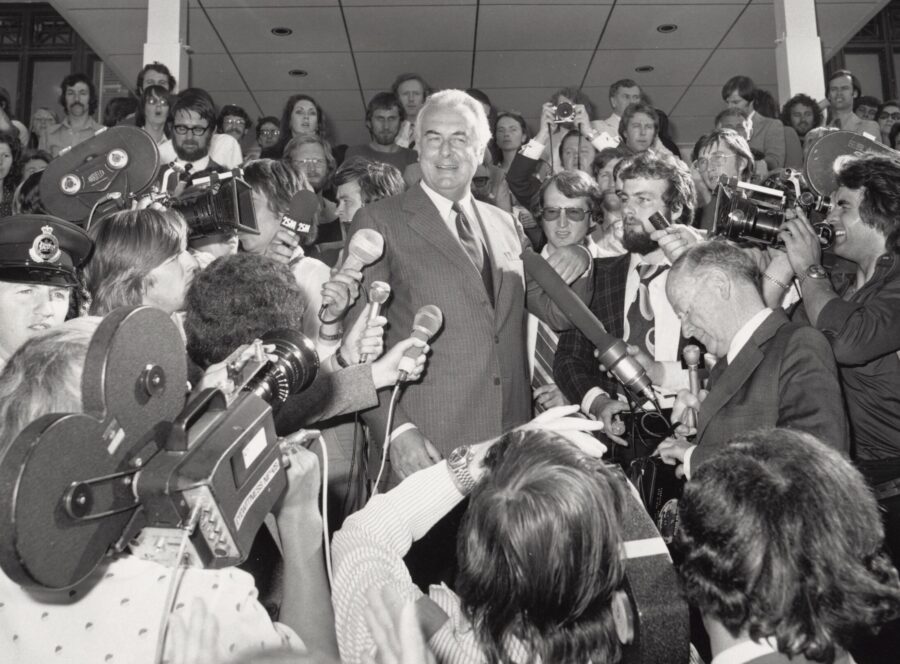Fifty years on: Remembering Whitlam’s shock dismissal

On 11 November 1975 the newly sacked Gough Whitlam stood before a crowd of camera-toting journalists and uttered one of the most memorable quotes in Australian politics: “Well may we say ‘God save the Queen’, because nothing will save the Governor-General.” Fifty years on, you’d be hard-pressed to find a more divisive moment in our nation’s political history.
Whitlam entered office in 1972, intent on transforming Australia after 23 years of Coalition rule. His Labor government quickly introduced sweeping reforms in healthcare, education, social policy and foreign affairs, while developing programs for the environment, Aboriginal self-determination, women’s rights, multiculturalism and more.
However, Whitlam’s government only controlled the House of Representatives – not the Senate, where the conservative Opposition still held a majority. The Senate routinely blocked his legislation, impacting his ability to carry out reforms. In fact, the Senate would reject more bills during the next three years than it had done in its entire 71-year history.
Whitlam was a bold leader whose progressive reforms would shape modern Australia and leave a lasting impact. But his government also gained a reputation for excessive spending during a global recession and had its share of scandals. The most damaging was the 1974–75 Loans Affair, in which the government secretly tried to secure a $4 billion loan from a shady overseas intermediary. To the Opposition, it was the final nail in the coffin.
The simmering conflict between the Senate and the Whitlam government finally boiled over in October 1975, when the Senate blocked supply – cutting off the government’s access to funding – to pressure Whitlam into calling an early election. Whitlam refused to do that and stood his ground. The political deadlock between him and the Senate continued for weeks, pushing the government towards the brink of insolvency, until Governor-General Sir John Kerr intervened and sacked Whitlam.
The dismissal divided Australia. Protesters took to the streets in pro-Whitlam demonstrations across the country, while some voiced their support for Kerr, viewing his actions as necessary to end the constitutional crisis. Most, however, were outraged by Kerr’s use of discretionary reserve powers, which was widely seen as undermining Australian democracy.
People from across the political spectrum were disturbed by the fact an unelected official – the representative of a monarch living halfway across the globe – had the authority to dismiss a democratically elected government. Kerr would ultimately become a pariah, shunned by the Australian public until his death in 1991.
Whitlam’s dismissal set a precedent that, while never repeated, has continued to cast a shadow over Australian politics. Ironically, it also stalled Australia’s republican movement, because it called into question the level of power an Australian head of state should hold in a future parliamentary republic.






